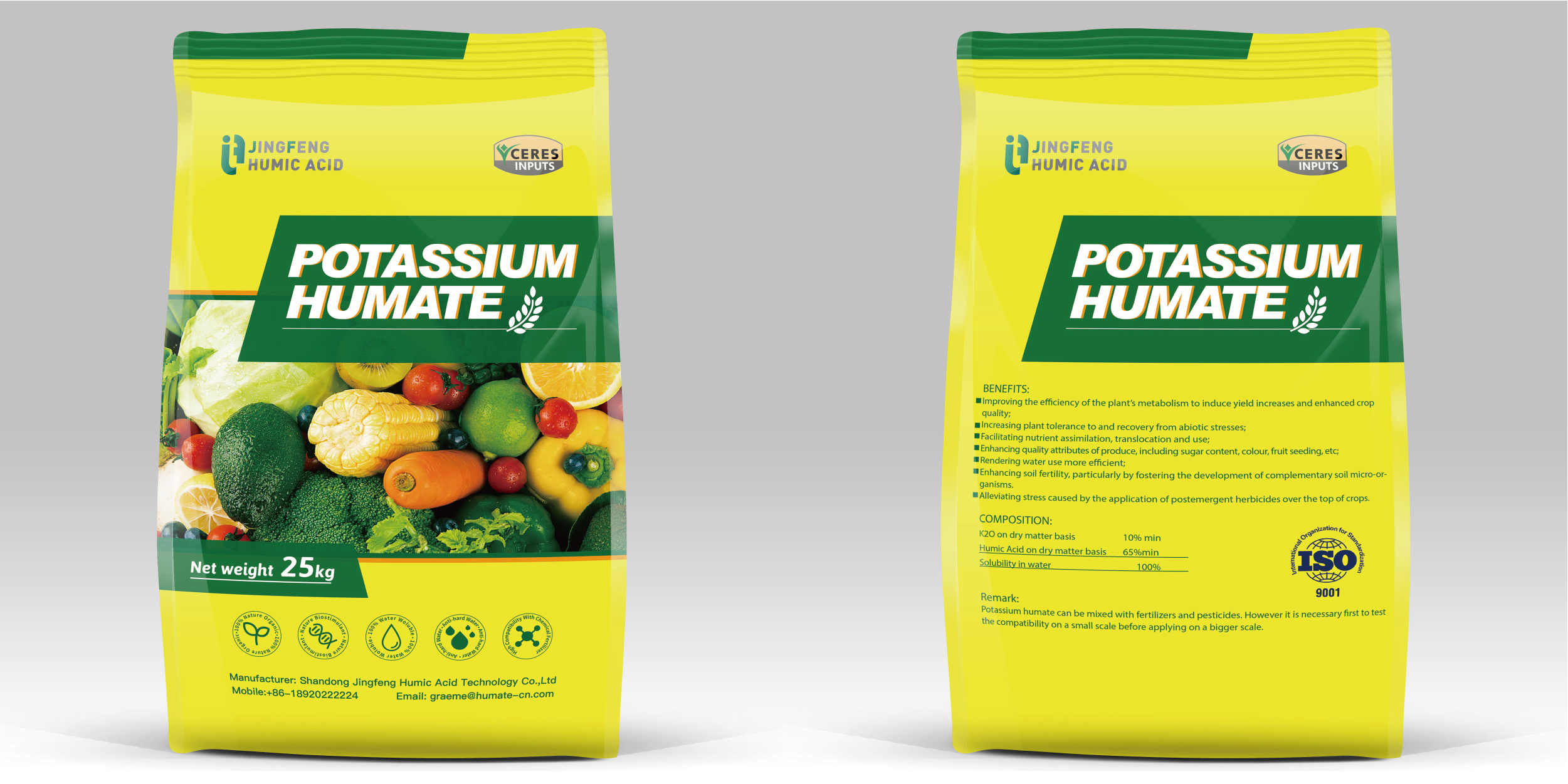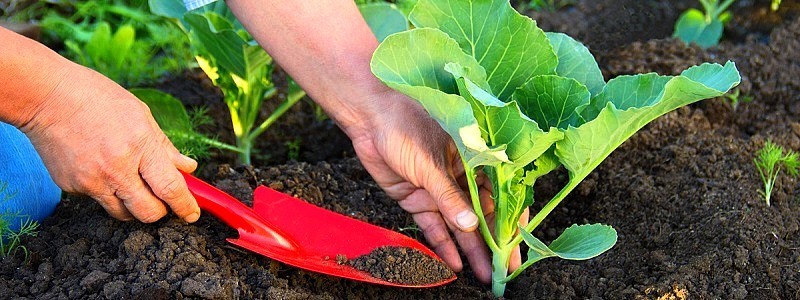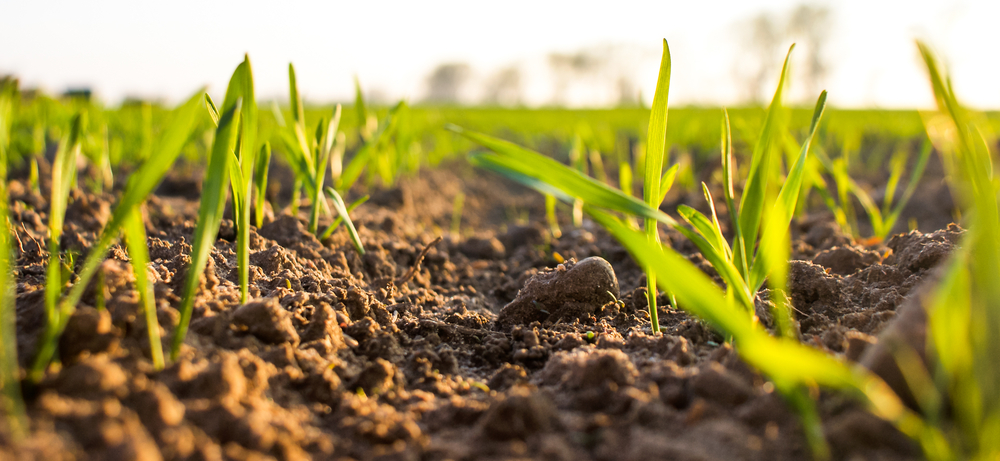
Potassium humate has important uses in agriculture. Fulvic acid, black humic acid and brown humic acid are collectively called humic acid. In which fulvic acid has small molecular weight and high active, easily abserbed by plants and quick effect.
For soil, improving soil,promoting soil temperature,enhancing root development. Effectively regulating soil acidity and alkalinity, solving soil consolidation and so on.
In the case of dry climate, reduce the stomatal opening of crops. Commonly known as drought resistance No.1. Potassium fulvate used in combination with other inorganic fertilizers (such as nitrogen, phosphorus, potassium, etc.). Can fix nitrogen, hydrolyze phosphorus. Release potassium slowly. Promote the transformation of active components in plants. And increase the utilization rate of all kinds of active components up to 80%.
As a result, potassium humate has many uses in agriculture.
The application of potassium fulvate in vegetables
The application of potassium humate in vegetables: mainly to prevent the pollution of continuous cropping of vegetable soil and the infection of continuous cropping pathogens; it can effectively destroy the propagation of soil pathogens; enhance the soil aggregate structure, effectively promote the multi-rooting of crops and new roots, and promote the development of roots. All the above characteristics can comprehensively improve plant disease resistance, stimulate vegetable growth, and enhance crop photosynthesis. So that vegetables grow vigorously, increase the yield per unit area, and increase the income of vegetable farmers.
Effect and uses of potassium fulvate on Fruit trees
 The application of potassium fulvate on fruit trees: It can promote the development of the root system of fruit trees and improve the utilization rate of fertilizer. Thereby increasing the fruit setting rate, enhancing the color of fresh fruit and improving fruit quality. In addition, the fruit is more resistant to storage after harvest. It can also prevent root rot, and has a good conditioning effect on diseased trees and branches of fruit trees.
The application of potassium fulvate on fruit trees: It can promote the development of the root system of fruit trees and improve the utilization rate of fertilizer. Thereby increasing the fruit setting rate, enhancing the color of fresh fruit and improving fruit quality. In addition, the fruit is more resistant to storage after harvest. It can also prevent root rot, and has a good conditioning effect on diseased trees and branches of fruit trees.
There is a peach tree in the orchard planted by the horticulturalist Gao Yingzhou of the Gongyi City Horticulture Farm. The whole tree is dry and dead leaves, and there is a persimmon tree and one dry dead leaf. After the roots are irrigated with potassium fulvate fertilizer, the peach and persimmon trees spit out new sprouts. It is called by the fruit grower to have the miraculous effect of resurrecting the dead.
Potassium humate has widely uses in many agriculture plants, such as cotton, corn, wheat, melon, and fruit crops, and its effect is more obvious than that of inorganic fertilizer. In summary, potassium fulvate has special effects such as drought resistance and moisture preservation, loosening of the soil, raising ground temperature, improving soil pH, and stimulating crop growth. It has attracted the attention of experts in the agricultural sector and related agricultural systems. It is listed as a green fertilizer source of fertilizer organic matter, and is welcomed by the majority of farmers at the same time.
The performance of potassium humate and the basic function of preventing cotton wilt:

Fulvic acid contains in potassium humate is a high molecular weight organic compound with small molecular weight of humic acid. It contains a variety of active functional groups, which can be dissolved in water, acid, alkali, ethanol and acetone. It is easily absorbed by plants and has strong biological activity. It is widely used in production. It can not only supply sufficient nutrients for cotton, but also adjust the physiological functions of cotton, enhance the resistance of cotton, and effectively suppress the occurrence of cotton wilt.
1. Potassium humate uses in agriculture can improve the soil.
Humic acid is a colloidal organic substance. It can increase the aggregate structure of the soil, make the soil loose, and absorb water. It can not only pull dry, breathe Water storage, nourishment, drought prevention, so that the soil has good water, air, and thermal conditions, which is suitable for seed germination and seedling growth.

Humic acid can improve saline-alkali soil, especially fulvic acid contains more active groups, and base The exchange capacity is large, which can absorb and retain a large number of harmful cations from the soluble salt of the soil, reduce the concentration of salt in the soil, and reduce the harm of salts to seeds and seedlings. The application of fulvic acid compound fertilizer can make the emergence of saline-alkali soils. The rate and seedling rate are greatly improved, and the growth is good.
2. Fulvic acid in potassium humate has a stimulating effect on the growth and development of cotton.
In the process of crop growth, any physiological metabolism is inseparable from the activity of enzymes. Water-soluble humic acid molecules are inhaled into the body by the roots or leaves of the crop, which can regulate the physiological functions of the plant, and make the terminal oxidase of the crop root and the activity of glucoamylase in the body Improve, increase the respiration intensity of crop roots and leaves, and promote crop absorption of nutrients.

Fulvic acid is a regulator of cotton growth. It can promote early rooting and germination of cottonseeds, and increase the rate of emergence especially under low temperature conditions.
The roots are elongated, resulting in a large area of contact with nutrients for the developed roots and enhanced absorption capacity;
Can make the above-ground part of the vegetative body enters the cotton develops and grows, which is characterized by the height of the cotton plant, the thick stalk, and the increase of dry matter accumulation;
it can promote the increase of the respiration intensity of the cotton leaves, enhance the photosynthesis, and show that the leaves are lush and chlorophyll.
3. Fulvic acid has a synergistic effect on chemical fertilizers.
The effective utilization rate of macro elements such as nitrogen, phosphorus and potassium is low, so that the fulvic acid in the soil can fix nitrogen and release phosphorus and release potassium, especially the synergistic effect of potassium fertilizer.

One of the pathogenic factors of cotton wilt is the lack of potassium fertilizer. Fulvic acid can reduce the absorption and fixation of potassium in the soil, promote the release of insoluble potassium, thereby increasing the utilization rate of potassium fertilizer and increasing the amount of available potassium.
Fulvic acid can chelate the insoluble trace elements in cotton fields, thereby generating fulvic acid trace element chelate that has good solubility and is easily absorbed by crops. It is conducive to the absorption of cotton roots and improves the disease resistance of cotton.
4. Fulvic acid can improve the resistance of cotton.
Cotton is a frequently-occurring crop, and improving the resistance of cotton is the key to preventing cotton wilt.

The application of fulvic acid compound fertilizer in cotton fields can improve the ability of cotton to resist drought and waterlogging. That is, under drought conditions, it can save water and maintain moisture. When there is more water in waterlogging depressions, it can improve air permeability and regulate soil water. Serving content;
Increase the cold resistance of cotton. In the spring seedbed nursery season, the temperature is low, which is not good for cotton germination and growth. Application of fulvic acid compound fertilizer can make cotton root fast, germinate early, and seedlings strong; fulvic acid compound fertilizer improves cotton growth conditions, Improve the resistance of cotton.
5. Fulvic acid has the effect of inhibiting germs.
In the process of cotton growth, there are a variety of favorable factors that provide conditions for survival and activity of the cotton fusarium wilt fungus-imperfect fungus, so that the fungus invades the cotton plant and harms the cotton.

The soil-improving properties of fulvic acid have an important impact on the soil microbial flora and soil enzyme activity.
Experiments show that the application of fulvic acid compound fertilizer can increase the number of aerobic bacteria, actinomycetes, and cellulolytic bacteria in the soil, significantly reduce the number of fungi, and significantly increase the ratio of bacteria to fungi. This is for fungi. The cotton wilt pathogen caused by it has undoubtedly an inhibitory effect.
The above are the main potassium humate uses in agriculture.






